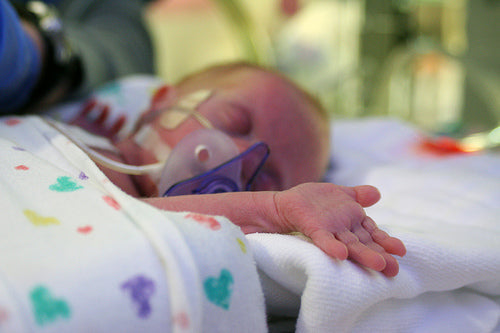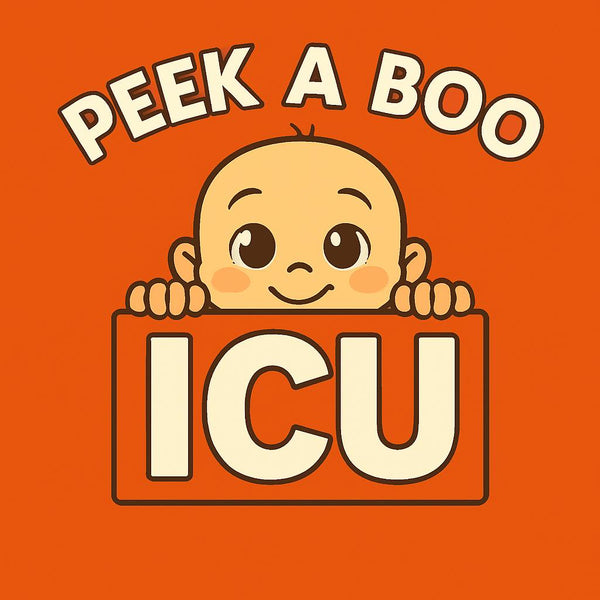
Your Preemie’s Special Language
Share
Understanding Your Baby in the Neonatal Intensive Care
The womb is a warm, dark, and cozy home where the baby spends their days and nights curled up with arms and legs tucked in and flexed. Sounds of the mother’s heartbeat are rhythmic and soothing while the outside world sounds are muffled and muted. Boundaries are formed by the uterine walls, and the baby can float, kick, and test these boundaries with great success. This environment is ideally perfect and so crucial for the baby’s growing and developing brain.
All of this is interrupted when a baby is born prematurely. Preemies suddenly face a new and chaotic NICU world polluted with loud noises, strong voices, bright lights, painful procedures, beeping machines, and stressful handling. All these things are often way too much for the underdeveloped neurological system to handle. It’s very difficult for their immature brain to process all these bombarding sensory message that this new NICU environment provides. Even though measures are taken to help control and reduce the negative effects that all this new and artificial stimulation can have on a baby, it’s impossible to eliminate all of the stressors. It is important to understand and recognize what causes overstimulation in your baby, what can be done to minimize the effects, and what you, as a parent can do to help your baby grow and thrive in the best way possible.
Premature babies speak to us in the only language they know, through their behavior. Paying close attention to your baby's body language will help you not only learn what your preemie is trying to tell you, but how to react to it to give your baby the very best start possible. All babies are unique, and based on their gestational age as well as their personality, will have different ways in which they react to their environment. As you spend more and more time with your infant, you will begin to lean their specific behavior cues, their likes and dislikes, and what your baby can and cannot handle.
The following is a list, based on gestational age, of stress or STOP signs as well as stability or GO cues. It’s important to recognize and respond appropriately to these signals when caring for your preemie.
